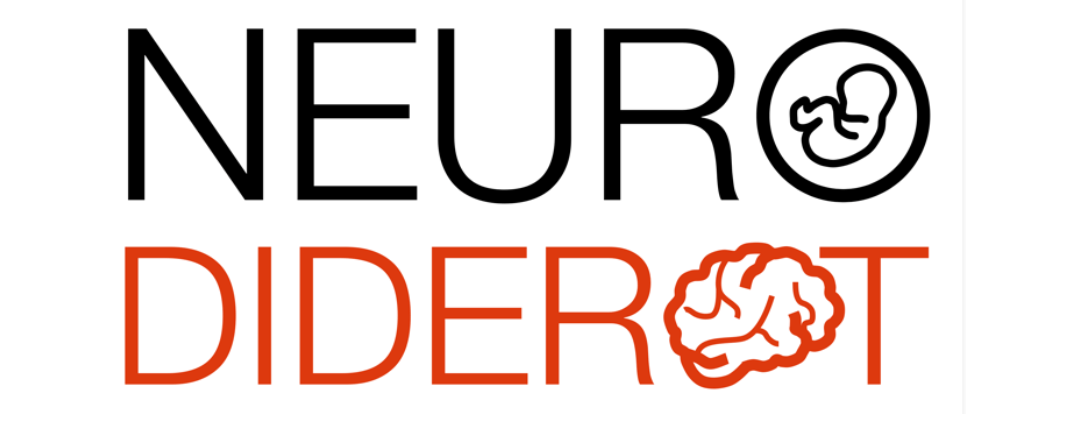Long-term consequences of post-traumatic brain injury
Group Alice Jacquens et Vincent Degos
Head injury is a public health problem, and is the most frequent cause of permanent disability in people under 40. Recently, several teams have highlighted the existence of tertiary lesions occurring up to several years after the trauma, during which a microglial neuroinflammatory phenomenon persists and becomes more pronounced, leading to post-concussion syndrome. In children, head trauma presents a number of particularities linked to the immaturity of the central nervous system. In addition, it can have a lifelong impact on these patients, who may develop cognitive and developmental disorders as they grow older. However, there is currently no treatment available to control the onset or evolution of these lesions.
We are studying the long-term effects of pediatric traumatic brain injury (TBI) in a mouse model. TBI is induced in mice at postnatal day 7 (P7) by weight-drop trauma. This model has been studied in previous works and is the source of acute neuroinflammation with microglial and astrocytic activation, and later, at P45, white matter lesions with thinning of the corpus callosum in TBI mice was detected by immunohistochemistry and confirmed by MRI. In addition, adolescent mice with pediatric TBI showed persistent social interaction deficits and signs of anxiety and depressive behaviors. We have also shown the presence of chronic abnormal microglial and astrocyte reactivity at the impact site in adult TBI mice at P45, suggesting a glial memory.
Our current projects are to study the long-term and distant consequences of head trauma on the cerebellum, and to find therapeutic strategies to limit the consequences of acute and chronic neuroinflammation in adulthood.
Members:
Alice Jacquens (Senior Registrar), Vincent Degos (Research Associate), Stéphanie Sigaut (Research fellow), Hélène Cwerman-Thibaut (Engineer), Abderazak Sidi-Salah (Technician)
Recent publications:
Deleterious effect of sustained neuroinflammation in pediatric traumatic brain injury. Jacquens A, Csaba Z, Soleimanzad H, Bokobza C, Delmotte P-R, Userovici C, Boussemart P, Chhor V, Bouvier D, van de Looij Y, Faivre V, Diao S, Lemoine S, Blugeon C, Schwendimann L, Young-Ten P, Naffaa V, Laprevote O, Tanter M, Dournaud P, Van Steenwinckel J, Degos V, Gressens P. Brain Behav Immun 2024 Aug:120:99-116. doi: 10.1016/j.bbi.2024.04.029.
Long-Term Cerebellar Consequences of Post-traumatic Brain Injury Assessed by MRI With Diffusion Tensor Imaging. Delmotte PR, Perret Liaudet B, Torkomian G, Unrung J, Cassereau D, Debarle C, Mathon B, Perlbarg V, Puybasset L, Degos V, Jacquens A. Neurosurgery. 2024 Nov 18. doi: 10.1227/neu.0000000000003274.
MRI volumetry and diffusion tensor imaging for diagnosis and follow-up of late post-traumatic injuries. Jacquens A, Delmotte PR, Gourbeix C, Farny N, Perret-Liaudet B, Hijazi D, Batisti V, Torkomian G, Cassereau D, Debarle C, Shotar E, Gellman C, Mathon B, Bayen E, Galanaud D, Perlbarg V, Puybasset L, Degos V. Ann Phys Rehabil Med. 2024 Mar; 67(2):101783. doi: 10.1016/j.rehab.2023.101783.
Neuro-Inflammation Modulation and Post-Traumatic Brain Injury Lesions: From Bench to Bed-Side. Jacquens A, Needham EJ, Zanier ER, Degos V, Gressens P, Menon D. Int J Mol Sci. 2022 Sep 23;23(19):11193. doi: 10.3390/ijms231911193.
Contacts
Alice Jacquens
NeuroDiderot, Inserm U1141
Hôpital Robert Debré
48 boulevard Sérurier
75019 Paris
alice.jacquens@inserm.fr
Vincent Degos
NeuroDiderot, Inserm U1141
Hôpital Robert Debré
48 boulevard Sérurier
75019 Paris
vincent.degos@inserm.fr
À lire aussi

Conference Thursday, January 22, 2026, 11:00 AM by Xavier Leinekugel from the Institut de Neurobiologie de la Méditerranée (INMED), Marseille : Potential consequences of altered maturation of hippocampal perisomatic inhibition on cognitive development and neurodevelopmental disorders
20260122 Xavier LEINEKUGEL english

Conference Thursday, February 12 2026, 2PM (zoom) by Pr Raul Chavez-Valdez from Baltimore : Synaptic Plasticity following Neonatal Hypoxic-Ischemic Brain Injury
20260212 séminaire Raul Chavez english

Conference February 19, 2026, 11:00 AM by Dr Clément Apelian from PRHySME : Hypnosis beyond fantasy – basic science challenges and clinical relevance
20260219 séminaire Clément Alepian english
Conference April 16th, 2026, 11:00 AM by Alexandra Benchoua from I-Stem : Human pluripotent stem cell models for high-throughput screening of therapeutic molecules and precision medicine in neurodevelopmental disorders.
20260416 séminaire A-Benchoua english
